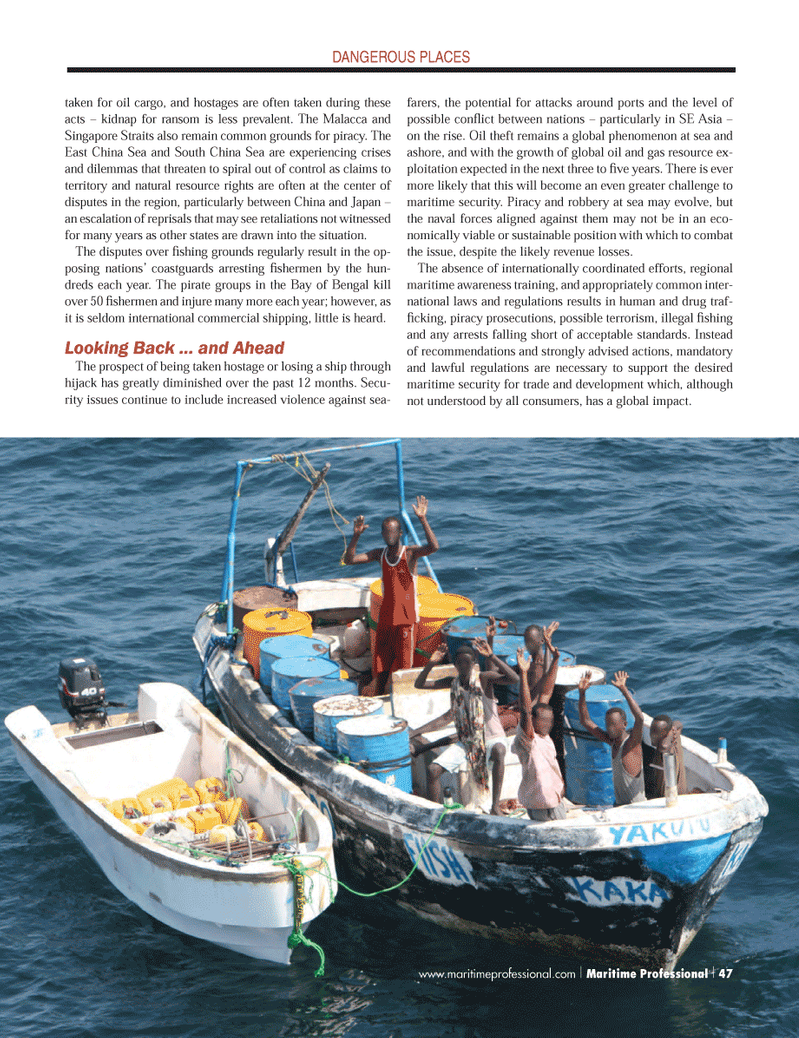
Page 47: of Maritime Logistics Professional Magazine (Q1 2013)
Maritime Risk
Read this page in Pdf, Flash or Html5 edition of Q1 2013 Maritime Logistics Professional Magazine
taken for oil cargo, and hostages are often taken during these acts ? kidnap for ransom is less prevalent. The Malacca and Singapore Straits also remain common grounds for piracy. The East China Sea and South China Sea are experiencing crises and dilemmas that threaten to spiral out of control as claims to territory and natural resource rights are often at the center of disputes in the region, particularly between China and Japan ? an escalation of reprisals that may see retaliations not witnessed for many years as other states are drawn into the situation. The disputes over shing grounds regularly result in the op- posing nations? coastguards arresting shermen by the hun- dreds each year. The pirate groups in the Bay of Bengal kill over 50 shermen and injure many more each year; however, as it is seldom international commercial shipping, little is heard.Looking Back ... and AheadThe prospect of being taken hostage or losing a ship through hijack has greatly diminished over the past 12 months. Secu- rity issues continue to include increased violence against sea-farers, the potential for attacks around ports and the level of possible con ict between nations ? particularly in SE Asia ? on the rise. Oil theft remains a global phenomenon at sea and ashore, and with the growth of global oil and gas resource ex- ploitation expected in the next three to ve years. There is ever more likely that this will become an even greater challenge to maritime security. Piracy and robbery at sea may evolve, but the naval forces aligned against them may not be in an eco- nomically viable or sustainable position with which to combat the issue, despite the likely revenue losses. The absence of internationally coordinated efforts, regional maritime awareness training, and appropriately common inter- national laws and regulations results in human and drug traf- cking, piracy prosecutions, possible terrorism, illegal shing and any arrests falling short of acceptable standards. Instead of recommendations and strongly advised actions, mandatory and lawful regulations are necessary to support the desired maritime security for trade and development which, although not understood by all consumers, has a global impact.DANGEROUS PLACES www.maritimeprofessional.com | Maritime Professional | 47MP #1 34-49.indd 47MP #1 34-49.indd 472/22/2013 11:24:24 AM2/22/2013 11:24:24 AM

 46
46

 48
48
